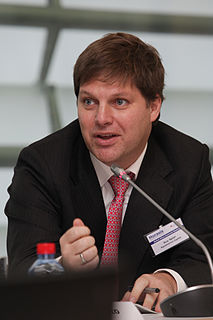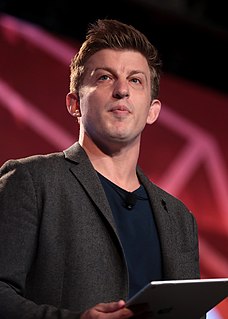A Quote by David Wong
I argue for a relational conception of the person as a basis for an environmental ethic that can encourage us to preserve the environment not solely on the basis of satisfying human interests and not solely because we might attribute intrinsic value to the environment, but because the environment is something with which we can potentially enter into constructive relationship, as part of what makes us who we are or transform who we are and open us up to new interests.
Related Quotes
The Zhuangzi is very good on telling us how the nonhuman-made world can enter into who we are more deeply than at the level of answering to our current interests. If the environment can shape who we are, it can shape our very interests, leading us to recognize things, events, and processes that are of genuine value and that we have not previously recognized as such.
A Resource-Based Economy is in the application of the methods of science with human concern and environmental concern. If we used the scientific method throughout the world, the probability of war drops to zero. The probability of human suffering disappears. Deprivation, poverty, crime - all those things tend to disappear because there's no basis. I'm strictly concerned with the environment that people are raised in and if that environment is altered, so will behaviors be altered.
But I think it’s important to discuss just how easy it is for any of us to get caught up in things that might seem unthinkable—to get sucked into the wrong environment and make moral compromises that can tarnish us terribly. We like to think that we change our environment, but the truth is that it changes us. So we have to be extraordinarily careful to choose the right environment—to work with, and even socialize with, the right people. Ideally, we should stick close to people who are better than us so that we can become more like them.
If there are dollars to be made, you destroy the environment. The reason is elementary. The people who are going to be harmed by this are your grandchildren and they don't have any votes in the market. Their interests are worth zero. Anybody that pays attention to their grandchildren's interests is being irrational. Because what you're supposed to do is maximize your own interests, measured by wealth, right now. Nothing else matters. So destroying the environment and militarizing outer space are rational policies, but within a framework of institutional lunacy.
There is, however, a moral basis for the vegetarian diet for which the indeterminate value of an animal's life takes on irrelevance. And that moral basis is a concern for the environment, a value as absolute as the value we all place on human life, since humanity will not survive for long on a poisoned planet. To be an environmentalist who happens to eat meat is like being a philanthropist who doesn't happen to give to charity.
The natural environment is not particularly hospitable to human life ... the key to having a good environment is improving it through work... . Energy is fundamentally an environmental improver and if we classify it that way it makes sense out of a lot of these controversies... . It's our obligation and our right to make [our environment] as good for human beings as possible. With that view, it's very easy for people to understand precisely the reason it's good to alter it - because it doesn't naturally come the way we need it to be.
There are various art forms we may or may not have talent for, may or may not have time for, and we may or may not be able to express ourselves in, but we ought to consider this fact-that whether we choose to be an environment or not, we are. We produce an environment other people have to live in. We should be conscious of the fact that this environment which we produce by our very 'being' can affect the people who live with us or work with us.




































